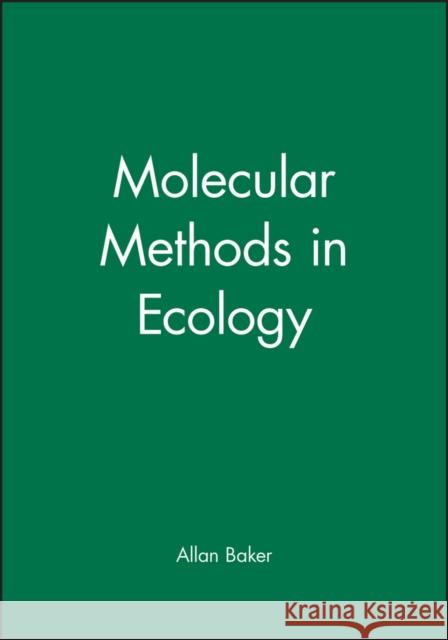Molecular Methods in Ecology » książka
Molecular Methods in Ecology
ISBN-13: 9780632034376 / Angielski / Miękka / 2000 / 348 str.
The incorporation of molecular methods in ecological research has added an exciting new dimension to conventional studies, and opened windows into previously intractable areas of research, at the interface between ecology and genetics. Using these new methods it has now become routine to use genetic markers to study ecological phenomena, from molecular sexing of individuals and parentage of offspring, through to population structure of species and phylogenetic relationships of taxa. These methods have stimulated an explosion of empirical and analytical developments in molecular ecology, which have in turn, increasingly attracted students and professional biologists eager to employ them in their studies.
Molecular Methods in Ecology traces the development of molecular ecology by reviewing basic molecular biological techniques and earlier methods such as protein electrophoresis, DNA-DNA hybridisation, restriction analysis of DNA, and DNA fingerprinting. Later chapters review methods using newer classes of markers such as microsatellites, introns, MHC, SSRs and AFLP markers in plants and molecular sexing in animals. The strengths and limitations of methods are discussed and guidance is provided in selecting the most appropriate methods for particular problems in ecology.
This book will provide both postgraduates and researchers with a guide to choosing and employing appropriate methodologies for successful research in the field of molecular ecology.
- Provides up-to-date summaries of the latest molecular approaches in this rapidly expanding field.
- Gives guidance on the appropriate choice of methods for particular problems in ecology, and their strengths and limitations.
- Provides brief laboratory protocols for each molecular method and summaries of software available for analysis of data in molecular ecology.
- Outlines examples of the latest research results from studies of both plants and animals, integrated within the framework of molecular ecology.











